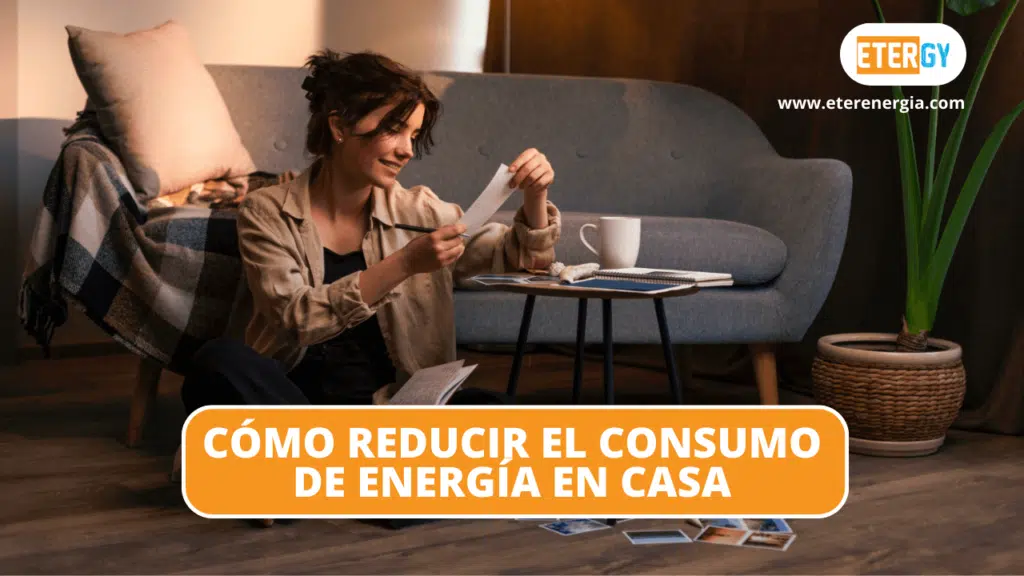Strategies to reduce energy consumption at home: 7 effective tips

The reduction of energy consumption in the home is an essential aspect of achieving a more sustainable and economical life. With the growing concern for environmental impact and energy costs, it is essential to implement effective strategies that allow us to optimize energy use in our homes. Below are seven practical tips that will facilitate the reduction of energy consumption in the home, helping not only the planet but also significantly reducing electricity bills.
Reducing energy consumption at home is not only beneficial for the environment but also allows for significant economic savings. Implementing effective strategies can result in a considerable decrease in utility bills. Here are seven practical tips that will help households to be more efficient in their energy use, contributing to a more sustainable lifestyle.
Use energy-efficient appliances
One of the first strategies to reduce energy consumption is to choose appliances that have energy efficiency labels. These appliances are designed to use less electricity without sacrificing performance. When buying, check the energy rating and choose those that are class A or above, as they can represent substantial savings in the long run.
Turn off and unplug devices
It is essential to adopt the habit of turning off and unplugging electronic devices when they are not in use. Many devices continue to consume energy in standby mode, which is known as “phantom load.” Use power strips with switches to facilitate the process, and make sure to turn off lights and equipment when you leave a room.
Maximize natural light
Maximizing natural light is another effective strategy. During the day, open curtains and blinds to allow sunlight to enter. This not only saves energy but also creates a warmer and more inviting atmosphere in the home. Additionally, consider painting walls in light colors, which will help reflect light and reduce the need for artificial lighting.
Modify your hot water consumption
Heating water is one of the main contributors to energy consumption in a home. Therefore, it is advisable to set the water heater temperature to 60 degrees Celsius and pay attention to shower durations. Opting for shorter showers instead of baths can represent considerable savings.
Incorporate the use of energy-saving bulbs
Replacing incandescent bulbs with LED bulbs is a simple yet highly effective change. The latter consume up to 80% less energy and have a much longer lifespan. Also, make sure to turn off lights in rooms that are not being used, and make the most of natural light during the day.
Improve home insulation
Good insulation is crucial for maintaining the desired temperature inside the home, reducing the need for heating or air conditioning. Check the seals on doors and windows and consider installing insulating curtains. It is also helpful to check the insulation in the attic and walls to prevent heat loss.
Cook efficiently
The way food is cooked can also influence a home’s energy consumption. Cooking several dishes at once or using pressure cookers helps save energy and time. Additionally, remember to use lids on pots to reduce cooking time and prevent heat loss. Also, when using the oven, avoid opening it constantly, as this lowers the temperature and requires more energy to reheat.
Implementing these strategies will not only save energy in the home but also contribute to a more responsible and sustainable lifestyle. Every small change counts, and by adopting a conscious attitude towards energy consumption, we can help protect the environment and our wallets at the same time.
The need to reduce energy consumption in our homes has become an imperative for both economic and environmental reasons. Implementing effective strategies to decrease energy spending contributes not only to the protection of the planet but also translates into significant savings on utility bills.
One of the key points is the efficiency in the use of appliances, such as maximizing the washing machine or using the dishwasher efficiently. Accumulating clothes before running a washing machine can be a good tip to reduce the number of cycles and, consequently, energy consumption. Moreover, it is vital to unplug these devices when not in use, as many of them continue to consume energy in stand-by mode.
Another effective strategy is to use energy-saving lighting. Switching incandescent bulbs to LED not only saves energy but also increases the durability of the lights. Similarly, using natural light whenever possible can dramatically reduce the need to turn on artificial lights during the day.
Furthermore, moderating the use of heating and air conditioning by adjusting thermostats to reasonable temperatures also plays a fundamental role. Each additional degree of heating or cooling significantly increases energy consumption, so maintaining a thermostat at 20 ºC can be very beneficial.
Finally, adopting sustainable habits, such as taking shorter showers and cooking multiple foods at once, contributes to reducing energy use. These tips, although simple, are crucial steps towards a more sustainable home.




